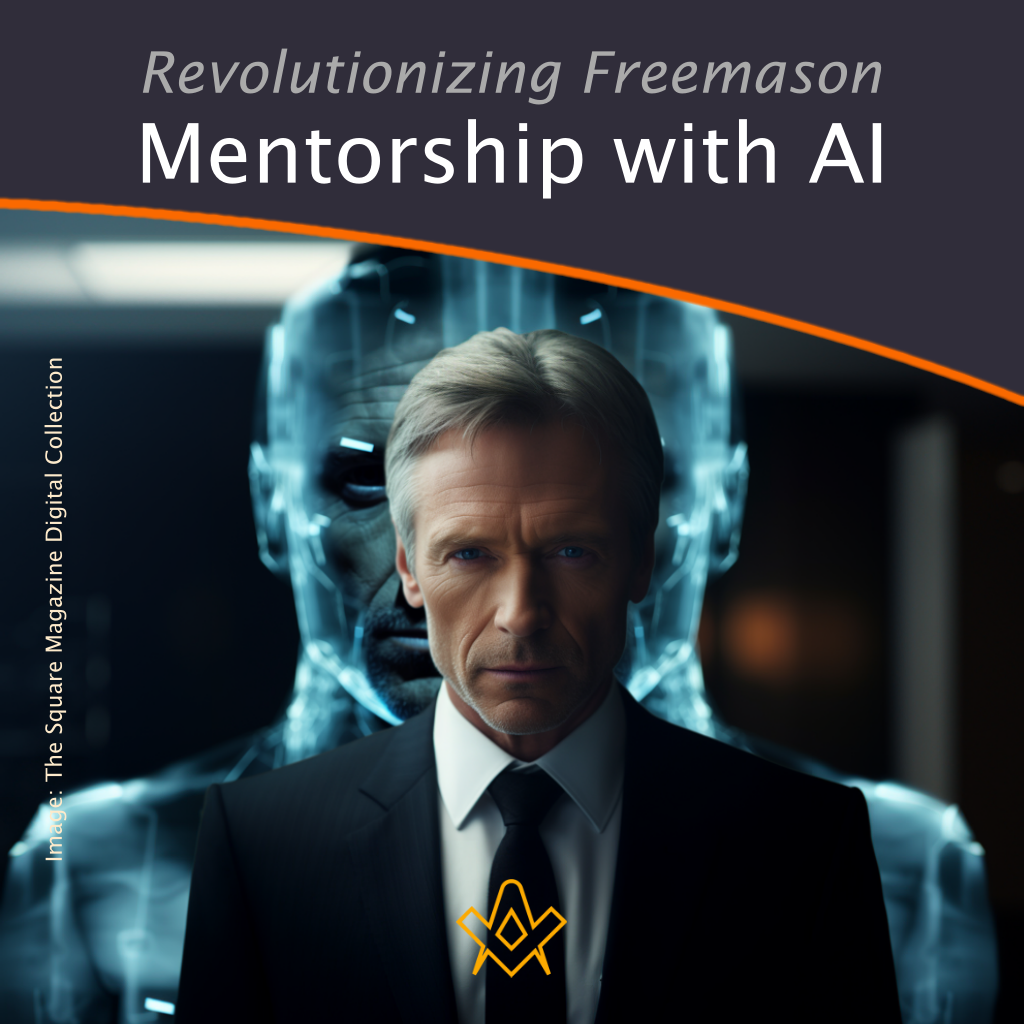Explore the intricate relationship between Freemasonry and mentorship in this captivating article.
Unearth the rich history of this secretive fraternity, the symbol-laden rituals, and the transformative power of mentorship within the brotherhood.
Delve into challenges faced and the potential impact of AI on Freemasonry mentorship.
Immerse yourself in this intriguing journey!
Introduction to Freemasonry and the Importance of Mentorship
Established in medieval Europe, Freemasonry is a fraternal organisation steeped in esoteric traditions and customs. Rooted in the principles of Brotherly Love, Relief, and Truth, the Brotherhood is marked by elaborate rituals, secret handshakes, and emblematic regalia.
This secretive society has been the subject of countless conspiracy theories, adding to the mystical allure it emanates.
Central to Freemasonry is the profuse tapestry of mentorship. For centuries, the Brotherhood has been nurturing younger members under the wise tutelage of the elders.
Stepping into the Masonic lodge as an ‘Initiate’, the Freemasons embark on a journey of self-discovery and spiritual enlightenment.
The striking beauty of Kepler’s patterns, Pythagorean theorem’s simplicity, and Fibonacci sequence’s harmony all oftentimes unfathomable to the untrained eye, but to Freemasons, these symbolise codes revealing profound life philosophies.
To unlock the vast knowledge that Freemasonry holds, the new entrants into this mystical order are paired with seasoned members.
These established Freemasons, also known as Masonic Mentors, provide precious guidance throughout the Initiate’s journey from the dark into the light – a metaphorical expression symbolising the member’s transformation into Freemasonry.
This prototype aims at a one-to-one transfer of knowledge, allowing newbies to absorb wisdom on tenets of Freemasonry eloquently laid out by the elders.
Masonic mentors, bestowed with the noble task of fostering the newest members in the fraternities, unravel the coded messages and rituals. They provide a holistic perspective to the new ‘Brothers’, ensuring their true understanding of Masonic rituals and symbols.
These relationships evolve over time, transforming from a simple pedagogue-student relationship to a deep bond built on shared experiences, mutual respect, and, above all, trust.
However, effective mentoring transcends a mere lore transfer. It involves tailoring the experience to individual learning styles, mediating the application of knowledge to real-world scenarios and developing emotional intelligence.
Through mentorship, Freemasons gain a profound understanding of the fraternal morals, paving the way for their growth within the fraternity.
Deservedly, mentorship’s importance cannot be overstated within the Masonic framework. Yet, inherent challenges – human error, subjective judgement, and bias – in the traditional mentor-mentee matching process pose huge roadblocks.
In today’s digital era where AI is transforming various sectors, could it be the game-changer Freemasonry mentorship requires? The prospect is certainly worth exploring.
Overview of AI (Artificial Intelligence)
Artificial Intelligence, commonly referred to as AI, is one of our age’s most influential technological forces. Born from a fusion of big data, high-performance computing, and advanced algorithms, AI mimics human cognitive functions like problem-solving, perception, and learning.
It has transformed how we interact with the world, transforming myriad sectors from autonomous vehicles in transport to personalisation algorithms in entertainment.
AI can be broken down into machine learning and deep learning, with the former allowing computers to learn from data, and the latter uses neural networks for complex problem-solving.
Notably, AI is characterised not just by its capabilities, but also by its capacity to continually learn and optimise its functionality over time. This self-learning feature is what sets AI apart, heralding a paradigm shift in the world of technology.
The Role of Mentorship in Freemasonry
Mentorship within the realms of Freemasonry is not simply a protocol; it is a cornerstone of the Masonic experience. The purpose of mentorship is two-fold. Firstly, it aims to guide new Freemasons, often referred to as ‘Entered Apprentices’, through their initial journey within the fraternity.
Secondly, it pairs the neophytes with seasoned members acting as mentors, who decrypt and elucidate the meanings behind various Masonic symbols and rituals.
Freemasonry encompasses a vast pool of allegorical rituals and moral lessons interwoven into its very fabric. Consequently, deeper understandings of these lessons and rituals often require experienced members to act as mentors.
Through their mentor’s guidance, new Freemasons can glean insights that go beyond the superficial, nurturing their understanding of the fraternity’s esoteric philosophies.
The Benefits of Mentorship for New Freemasons
For new Freemasons, mentorship is much like a candle in a dark room. Even the brightest of minds may struggle to scale the walls of Masonic mysteries unaided. Here, mentors ignite the flame of knowledge, guiding their mentees through the complicated labyrinth of Masonic wisdom.
Mentorship provides an enriching fraternal experience to the newly initiated Freemason. Mentor-mentee relationships often evolve into lifelong bonds, enhancing the sense of brotherhood. Furthermore, through regular interactions, mentors facilitate the acclimatisation of the new entrants into the Masonic culture.
By bridging gaps in understanding and unlocking the profound depths of Masonic teachings, mentors shape well-rounded Freemasons and lay sturdy foundations for the fraternity’s future.
Challenges in Traditional Mentor-Mentee Matching
Despite the noble intent, the mentor-mentee matching process within Freemasonry often faces a series of challenges.
The traditional mentorship model is predominantly based on human-mediated matching, which can be liable to unconscious bias, misunderstanding, or errors. For example, potential mentors could be matched based primarily upon their availability, rather than their compatibility with the mentee.
Intangible elements, such as personalities, shared interests, learning preferences, and even communication styles, are all integral in cementing successful mentor-mentee relationships. However, assessing these nuances accurately and objectively is a Herculean task for humans.
The potential fallout from ill-suited matches can range from meagre progress in the mentee’s understanding of Freemasonry, to disillusionment and potential withdrawal from the fraternity. To circumvent these hurdles, it’s time the fraternity contemplated bringing the transformational power of AI to their mentorship programs.
The Advent of AI in Mentorship Programs
Today, we stand on the cusp of a technological revolution as Artificial Intelligence (AI) emerges as a stalwart across varied domains. The winds of this technological renaissance are blowing towards Freemasonry, a fraternity deeply rooted in tradition yet not averse to innovation. This juncture, where tradition meets technology, promises a sweeping transformation of the revered Freemason mentorship system.
The Rise of AI in Various Fields
Technology, specifically the advent of AI, has indelibly shaped society over recent years. From healthcare and finance to entertainment and education, there is arguably no sector left untouched by AI’s transformative hand.
AI is presenting intelligent, efficient, and precise solutions in places previously unimaginable. In healthcare, AI is being used to improve patient outcomes, facilitate early disease detection, and optimise treatment plans. In finance, AI algorithms are predicting market trends, aiding in risk analysis, and automating customer service through chatbots.
Even the educational sector has seen the integration of AI tools to personalise learning, automate administrative tasks, and predict student performance. These diverse applications of AI bear testimony to the magnitude of influence that AI exerts on every facet of our society.
How AI is Being Used in Mentorship Programs
AI in mentorship is a relatively new concept, yet it holds an untapped wellspring of potential. Through machine learning and data analysis, AI can help orchestrate mentor-mentee matching processes, factoring in variables such as personality traits, learning styles, personal interests, and even communication preferences.
Imagine an algorithm that gauges a mentee’s learning style, their interests within Freemasonry, personal aspirations, their preferred pace of learning, and their compatibility with potential mentors. Acting as a master matchmaker, such an AI system could craft mentor-mentee pairs that truly benefit both parties, fuelling productive mentorship.
Benefits of Using AI in Mentorship
The use of AI in the mentorship process yields several benefits. Firstly, it enables a more personalised approach to mentorship. By drawing from sizable datasets, AI can help fashion individually tailored mentoring experiences, enhancing outcomes.
Secondly, the objective analysis provided by AI mitigates the chances of bias or misjudgement that can creep into human-mediated mentor-mentee matching. This impartial approach ensures a fair matching process, addressing one of the most critical challenges faced by traditional methods.
Lastly, an AI-driven mentorship model allows for feedback integration and continuous learning. Armed with machine learning capabilities, the AI system can learn from feedback and refine its decision-making, thereby improving its efficacy over time.
Potential Challenges and Solutions
That being said, integrating AI into the traditional scheme of Freemasonry poses its own challenges. The concept may find resistance among members who are not comfortable with the digital realm or those who hold data privacy concerns.
Addressing these issues becomes paramount to foster confidence in AI mentorship. First and foremost, extensive training sessions can be organised to increase digital literacy among members, and support can be provided to those who are initially hesitant.
Furthermore, stringent data privacy protocols should be put in place to safeguard member information. Security measures adhering to the highest standards should be implemented to ensure data protection. By focusing on these aspects, Freemasonry can traverse the journey from traditional mentorship to AI-driven mentorship smoothly and confidently.
Application of AI in Freemason Mentorship
As we stand at the intersection of tradition and innovation, the potential of applying AI in Freemason mentorship holds immense promise. Merging the wisdom of yesteryears with the nascent algorithms of AI, Freemasonry is poised for a transformation like never before.
Understanding the Needs of New Freemasons
Every new Freemason is an individual teeming with unique ambitions, interests, and learning preferences. Some might be attracted to the historical richness; others might be drawn towards the philosophical aspects. Some might advance rapidly through teachings, while others might take a more gradual approach.
Accounting for these diverse factors is crucial in crafting a mentorship experience that truly benefits the new Freemason. Handing over this colossal task to AI can enhance the efficiency and accuracy of understanding these needs.
By harnessing the power of advanced algorithms and data analysis, AI can dissect these nuances, creating a robust basis for successful mentor-mentee matches.
How AI Can Help in Matching Mentors and Mentees
The process of matching mentors and mentees has traditionally been a daunting task, fraught with complexities and prone to errors.
However, an AI application can calculate the most suitable matches based on a host of factors, including but not limited to personality traits, learning style, area of interest, and existing Masonic knowledge level.
Building on the concept of continuous learning, AI can utilise collected data, feedback, and experience to refine its decision-making process. It’s a model that is designed to improve over time, holding the potential to revolutionise Freemason mentorship.
Case Studies of AI in Freemason Mentorship
While AI in Freemason mentorship is relatively uncharted territory, several chapters of Freemasonry globally have started dipping their toes into the digital realm.
Their experiences, challenges faced, and successes achieved could be invaluable lessons for those looking to embark on a similar journey.
Sharing these case studies would provide not only tangible proof of AI’s capabilities within mentorship but also an insight into the implementation process and potential hurdles. It will foster a dialogue, a sharing of best practices and create a blueprint for others to follow.
Measuring the Success of AI-Enhanced Mentorship
Embracing AI is not simply about integrating it into the mentorship process; its success needs to be computed and evaluated. As with any new initiative, defining Key Performance Indicators (KPIs) can measure the success of AI-enhanced mentorship.
Metrics could include the satisfaction rate of new Freemasons, the effectiveness of mentor-mentee relationships, and the improvement in understanding Masonic principles among the entrants. Carefully tracking and analysing these indicators would help highlight areas of success and shed light on aspects requiring further refinement.
The future of Freemason mentorship stands on the brink of a major technological overhaul. One where data-driven insights, objective decision-making, and continuous learning promise to enhance the mentorship experience for every Freemason.
Future Trends: AI and Freemason Mentorship
As we step into the realms of AI-integrated Freemason mentorship, a realm teeming with potential, we catch a glimpse of the possibilities this intersection of tradition and technology presents.
Predicting the Future of AI in Freemason Mentorship
AI is slated to bring about a definitive shift in the landscape of Freemason mentorship. It is envisaged to act as a fulcrum, balancing tradition with innovation, personalisation with objectivity.
With advanced algorithms at play, AI can deliver more bespoke experiences to new Freemasons – taking into account their unique characteristics, preferences, and learning styles. The result? Improved mentorship outcomes and a smoother onboarding process, not to mention the added efficiency in mentor-mentee pairing.
Moreover, the capability of AI to adapt and improve over time opens the door to a mentorship model that grows more effective and efficient with each passing day. A self-improving system that is customised to the very essence of Freemasonry: continuous personal and communal growth.
How AI Can Improve Freemason Mentorship Further
As AI evolves, so will its applications in Freemason mentorship. Learning is a lifelong journey, and AI’s ability to learn and improve over time mirrors the very philosophy of Freemasonry.
An intriguing possibility on the horizon is the advent of a virtual mentor. Drawing on the enormous repository of Masonic knowledge, this AI mentor could provide personalised, ongoing guidance – readily available and tailored to each Freemason’s progress and queries. By integrating such a system, Freemasonry could further elevate its mentorship model, offering untapped potential.
The Role of Freemasons in Shaping AI Mentorship
Freemasons themselves are not mere recipients of the shift towards AI mentorship – they’re key contributors. They hold the power to shape how AI is incorporated into Freemason mentorship.
As stewards of Masonic teachings and traditions, Freemasons can offer invaluable insights into their unique needs, requirements, and concerns regarding AI mentorship. These insights would be elemental in developing and refining AI systems that resonate with the fraternity’s ethos and serve its members effectively.
Preparing for the Future: Freemasons and AI
Adaptability has always been a strength of Freemasonry, enabling it to preserve its traditions while responding to changing societal contexts. Accepting AI as a powerful tool – one that enhances rather than intrudes upon the strength of mentorship is crucial in this digital era.
Preparing for the future means fostering a culture of openness towards AI among the Freemasons, reassuring them of the preservation of Masonic sanctity even amidst technological shifts. It also involves equipping Freemasons with the necessary understanding and skills to navigate and harness the capabilities of AI.
As such, the future renaissance of Freemason mentorship lies in carving a path where AI and the fraternity walk hand in hand – preserving time-honoured traditions while embracing the endless potential of technology.
Conclusion: Embracing AI in Freemason Mentorship
As we unspool the threads of Freemason mentorship into the future, we see the weaving of a unique tapestry – one washed in the hues of tradition, yet intricately embroidered with the fibres of technological innovation.
Recap of the Importance of AI in Freemason Mentorship
Artificial Intelligence stands poised to breathe new life into Freemason mentorship. The power of AI is not in its capacity to replace human intuition and empathy, but rather, in its ability to enhance and complement human capabilities. In the context of Freemason mentorship, the precision, efficiency, and ability to incorporate continuous learning and adaptation – these could take mentorship to new, previously unfathomable heights.
AI leapfrogs the bottlenecks of traditional mentor-mentee matching, reduces bias, enables personalised approaches, and brings a level of objectivity that individuals simply cannot achieve. In essence, AI keeps the essence of mentorship – the human connection – while strengthening the process with data-driven insights.
Encouraging Freemasons to Embrace AI
The transformation of Freemason mentorship needs collective will. Freemasons, both mentors and mentees alike, must adapt to these advancements and embrace the influence of AI. This is not merely about accepting change but actively participating in shaping the change.
Through engagement, education, and encouragement, individual Freemasons can contribute towards shaping an AI-infused mentorship model that aligns with Freemasonry’s core values. Ultimately, the integration’s success hinges on every Freemason’s engagement and trust in the system.
The time is indeed ripe for Freemasonry to skilfully weave the old with the new, fusing tradition with technology. The Masonic legacy, steeped in centuries-old rituals and wisdom, holds an enduring allure.
However, it is the fraternity’s ability to evolve, to embrace progress while honouring tradition, which has ensured its longevity.
By implementing AI into Freemason mentorship, the fraternity has an opportunity to rejuvenate its practices. To not simply sustain, but to strengthen their legacy in line with the evolving societal landscape.
It’s a step forward, one that holds the promise of a richer, more effective mentorship process – for the Freemasons of today and tomorrow.
Call to Action for Freemasons to Explore AI Mentorship
Freemasons, the onus and the opportunity lie before you – to revolutionise Freemason mentorship through the exploration and integration of AI. Through trial and error, adaptation, feedback, and continuous iterations, we can establish a new era of Masonic mentorship practices.
An era marked not by the discarding of tradition, but by the augmentation of tradition with innovative technology.
Precedence signals caution, yet progress encourages leaps of faith. Dear Freemasons, it’s time to embrace the future.
Take this momentous step with confidence and curiosity – explore the potential and shape the future of Freemason mentorship with AI.
![]()
Onwards and upwards,
into the AI-tinted horizon!
Recent Articles: membership
 A Rose by any other Name may not be the same Explore the profound distinctions between conferred and transmitted Masonic degrees with Bro. Scott Wisdahl. Delve into how presentation quality, personal impact, and setting shape these rituals, and consider the potential for digital adaptations in modern Masonic practices. Join the discussion on enhancing the Masonic journey and preserving its essence. |
 Progression through the Degrees; a Rite or a Privilege? Exploring the layered journey of Freemasonry, Matt DA Fletcher probes the essence of progression—whether it's a mere rite or a privileged path. Delve into a nuanced perspective where every degree is not just a milestone but a fraction of a grander continuum. |
 Quantity vs Quality within the world of Freemasonry Dive into the compelling debate of quantity vs quality within the world of Freemasonry. Discover the transformative focus on attracting members aligned with the institution's values, promising not only growth but quality growth. High-value individuals assure sustainable development with their commitment to serving the brotherhood. |
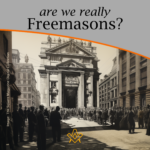 Maybe Freemasonry has opened its doors too wide. Perhaps some have not understood that the survival of Freemasonry in order to achieve its sublime purpose lies not in the number of members it has, but in their quality. Maybe we need less members and more Freemasons. Less men in Freemasonry and more Freemasonry in men. |
 What is ritual and why is it important? P1 Delve into the profound world of Freemasonry rituals and their significance. This insightful piece unravels the underlying importance of rituals, their impact on participants, and the transformative power they hold. Uncover why these centuries-old traditions remain integral to Masonic practice today. |
 Could Freemasonry be helpful for young men? Unravel the Masonic Brotherhood: Could Freemasonry be the antidote to modernity's challenges for young men? Dive in as we explore the Masonic world, its principles, camaraderie, and how its traditional rituals could help forge stronger identities in an increasingly complex world. |
 Discover the remarkable benefits of Lodge Meetings on your well-being. From fostering connections to combating stress, learn how these male-oriented gatherings offer an antidote to anger, hunger, isolation, and exhaustion. Dive into the power of shared experiences, understanding, and camaraderie. Your key to improved mental health awaits inside. |
 Tutorial for a Worshipful Master Unlock the Secrets to Leadership Mastery in our Worshipful Master's Tutorial! Brother Antonio Biella shares step-by-step guidance for Masonic Lodge leaders on honing their roles, duties, and future vision. Discover how to drive growth and engagement in your Lodge, setting ambitious goals and inspiring member participation. |
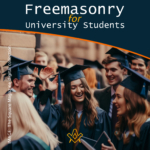 Freemasonry for University Students What are social skillset challenges facing students when they graduate from university ? |
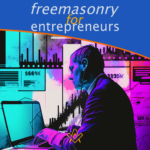 How the Core Values of Freemasonry; Brotherly Love, Relief and Truth Can Be Applied to Improve Productivity For Entrepreneurs |
 Why I became a Freemason: a personal journey of self-improvement Salik Tariq shares his reasons for becoming a Freemason – a journey of self-improvement, finding a community, and personal growth. |
 Freemasonry: Coming out of the Cloisters This paper examines the fundamental tensions on the lines of religion, gender and political ideology that exist in some jurisdictions of Freemasonry. It is on the first of these, religion, on which he makes an initial and exploratory focus. - by Gerald Reilly |
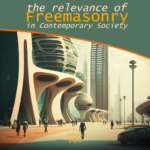 The Relevance of Freemasonry in Contemporary Society The role of Freemasonry in contemporary society is an indispensable one. Despite the challenges and misconceptions it faces, the organization remains steadfast in its humanitarian pursuits and commitment to personal growth and self-betterment. Through its efforts to evolve and adapt to the changing needs of its members and the world, Freemasonry continues to be a vital force in shaping a better future for all. |
 Has Freemasonry managed to revive and thrive after the darkness of the Pandemic? Robert Lomas gives us some (promising) insights. |
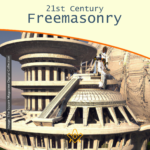 21st Century Freemasonry – a Sign of the Times? A recent article in The Times of London highlighted the dilemma 21st Freemasonry is facing. In this article one Master Mason shares his views of the strengths, and the challenges of modern Masonry. |
 A concept that is both based on our Freemasonic rituals and what we understand as teamwork. This article by Chris Batty examines why teamwork in the lodge is the network that binds us. |
 Lebanese Freemasonry has been both witness to and sometimes participants in turbulent events and forces, which shaped and influenced their world. |
 Is a Masonic Tradition Necessary? Dealing with Masonic tradition is a complex subject that requires careful analysis in order to reach a balanced point on the best etymological definition and the set of discourses and practices, which often end up being presented as such, without, however, presenting bases that support them, often serving only as a discourse that restricts and controls the masses. Fernando Rodrigues de Souza debates this complex subject. |
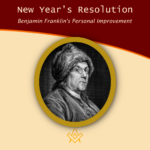 New Year's Resolution with Benjamin Franklin's Personal Improvement Are you ready for a new year's resolution challenge ? To accomplish his life’s goals, at 25 ( around 290 years ago ), Benjamin Franklin developed and committed himself to a personal improvement program that consisted of 13 virtues. You are invited to join me in practicing his daily routine for 2023. |
 The Alberta Masonic Higher Education Bursary Fund is to help the next generation of Albertans, our children and grandchildren, to obtain the education they need to lead successful lives and contribute to the welfare of mankind. As you can see from this little lesson of our history, education is truly a Masonic obligation. |
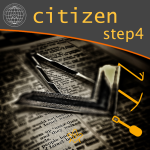 To be a Better Citizen of the World: Step 4 A value proposition for Pure Ancient Masonry as defined in terms of Citizenship; the allegories, symbolism and lessons are a blueprint for all Freemasons to be a better citizen of the world. |
 To be a Better Citizen of the World; Step 3 A value proposition for Pure Ancient Masonry as defined in terms of Citizenship; the allegories, symbolism and lessons are a blueprint for all Freemasons to be a better citizen of the world. |
 In connection with recent article about Freemasonry in the metaverse, we look at how an Egregore applies to Freemasonry in a digital world |
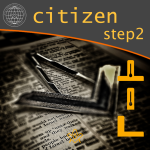 To be a Better Citizen of the World; Step 2 A value proposition for Pure Ancient Masonry as defined in terms of Citizenship; the allegories, symbolism and lessons are a blueprint for all Freemasons to be a better citizen of the world. |
 There are many brotherhoods in the world, and Freemasonry is one of the most significant and successful of them all. This article will be the focus two questions: the importance of brotherhood ? and is there room for improvement in Freemasonry? |
 Intergenerational relations in Masonry: challenges and possibilities Backed with scientific research, Professor Luiz Neto and Professor Alexandre Braune investigate the Intergenerational relations in Freemasonry and explores the challenges and opportunities. |
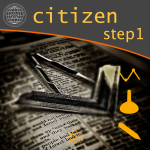 To be a Better Citizen of the World; Step 1 A value proposition for Pure Ancient Masonry as defined in terms of Citizenship; the allegories, symbolism and lessons are a blueprint for all Freemasons to be a better citizen of the world. |
 The Masonic Temple is a platform where both Freemasons and non-Masons, enthusiasts of real art and spiritual growth, connect to the new world of the metaverse. A Freemasonry in the metaverse project, based regular freemasonry principles. |
 Opportunity to fix the Sussex fudge Is there a value proposition for members, that under English Constitution Freemasonry, we have a 4 part offering; Entered Apprentice, Fellowcraft , Master Mason and Companion, conducted in a single craft lodge ? |
 Value Proposition of Freemasonry In addressing declining lodge membership and lack of attendance, we need to assess the value it offers to members. What is value, and what does it mean to you? |
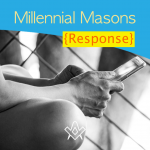 What is a 'Millennial' and what do they want from Freemasonry? You'll be surprised at the answers. |
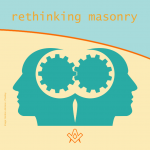 Let us help answer a fundamental question, from a confused newly raised brother asking “What does it all mean and where do I go from here?” |
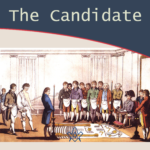 Written in 1930, much of the advice is still relevant today - although some may provoke further thought or debate! |
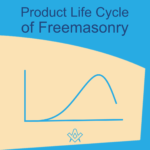 Product Life Cycle of Freemasonry An inconvenient truth about the product life cycle of Freemasonry |
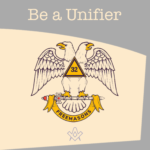 Freemasonry is local. This is where we need to start. We start with our Facebook friends, our neighbours, our colleagues, our lodges… |
 Freemasonry in the time of pandemic The Rule of Six. Localised lockdowns. Second wave? What do we do now?! The answer is simple - engage with members, promote Masonic education and get thinking outside the lodge. |
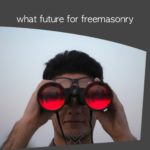 The current functioning of the Masonic movement has some positive aspects and others that are blatantly backward and counterproductive. |
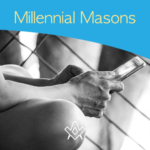 What is a 'Millennial' and what do they want from Freemasonry? You'll be surprised at the answers. |
 How to improve your Lodge Membership Marketing Program. |
 The Anti-Social Impact of Social Media The 'dark side' of social media and its negative effect on our mental health |
 If Freemasonry cannot meet, is this an opportunity to make a change to how we do things? |
 Has your lodge accepted an unknown candidate from the internet? Third in a three-part series looking at the process to accepting candidates via the internet |
 Is the brother of a brother a brother ? Rights to visit - recognition and regularity re-evaluated. |
 The second article in the Unknown Candidate series - Outlining the social media marketing process to attract the unknown candidate to make that first enquiry |
 Ask a random Freemason the purpose of Freemasonry and the likely response will be to “make good men, better”. Research undertaken by James Justin Davis Pennsylvania Academy of Masonic Knowledge. |
 Has your lodge accepted an unknown candidate from the internet? First in a three-part series looking at the process to accepting candidates via the internet |
 Mental Health - Raising its awareness and how we as Freemasons throughout the entire UK can help our fellow brethren and their families when they need it. |
 Share one thought why freemasonry is relevant today - Open question posted on Facebook with a very wide range of responses from Brethren across the globe |
 The Tipping Point of Freemasonry Why do brothers lose interest in Freemasonry and what can we do to get that spark back? At what moment did our own thoughts begin to waver? |
Recent Articles: by Gabriel Anghelescu
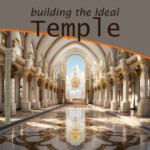 As Freemasons we could say that we have a double mission, namely building two ideal temples. Building an ideal Inner Temple, so that we can then transpose the inner construction on a larger scale and build an ideal Temple of Humanity. But can such ideal temples ever be realized, given that at first sight the word "ideal" seems to be synonymous with perfection? The answer may be both no and yes. |
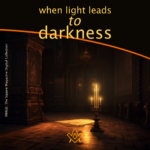 Embark on a thought-provoking journey into the world of Freemasonry in "When Light Leads to Darkness". Discover why remaining an eternal Apprentice is essential and how excessive light can shroud you in darkness. Unearth the hidden truths behind Freemasonry's symbols and teachings. Can too much 'knowledge' cloud 'understanding'? Read on to explore. |
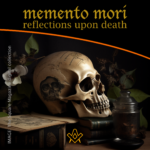 With a focus on "Memento Mori", explore the deep symbolism of the first and third degrees in freemasonry. Gain a unique insight into the reflections upon death and how they are intertwined with the teachings of the craft as Gabriel Anghelescu takes you on an intriguing journey of mystery and enlightenment. |
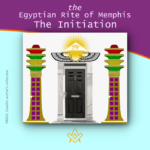 The Egyptian Rite of Memphis: The Initiation Following on from last month's article "The Egyptian Rite of Memphis: Past, Present and its Relevance for Today's Freemasonry", Gabriel Anghelescu leads us on the path of the Initiate into the Chamber of Reflection and beyond. |
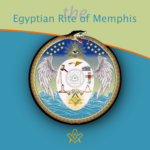 Over time many Masonic Rites have developed, each Rite having its own history, legends, and rituals. Some of them are still practiced today, and others have ceased to exist. The best known and at the same time the most practiced Masonic Rites are the Ancient and Accepted Scottish Rite and the York Rite. Among other Masonic Rites, we can find the Rite of Memphis, to which this article is dedicated. The Rite of Memphis is a branch of Esoteric Freemasonry and specifically one of the Rites of Egyptian Freemasonry. |


